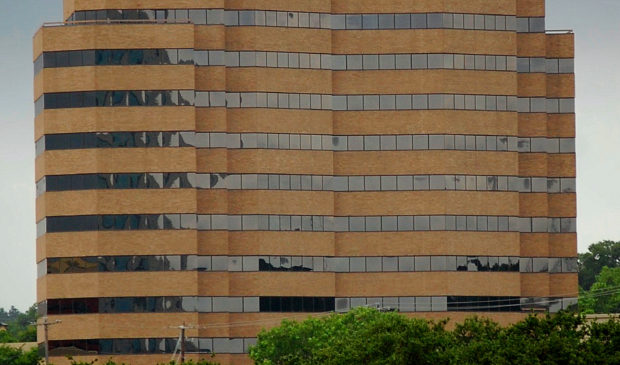Left waiting: Rally Austin pushes for city action on four sites ID’d for redevelopment
Monday, August 26, 2024 by
Chad Swiatecki Representatives of the economic entity created by City Council to speed up development of city real estate assets in support of affordable housing said they’re being stymied by inaction that’s holding back work on at least four high-profile sites.
In 2022, City Council approved four properties to consider for redevelopment in the near future, with Rally Austin – the former Austin Economic Development Corporation – put in charge of those projects. The four properties are One Texas Center at 505 Barton Springs Road, the former city municipal building at 124 W. Eighth St., and properties at 3002 Guadalupe St. and 411 Chicon St.
In an interview with the Austin Monitor, Rally Austin representatives said that the organization is waiting for the city to turn over control of the properties even as it moves forward with work to preserve creative spaces.
The likely public-private partnership opportunities for those four sites would be substantially different from Rally Austin’s creative space work, because they would likely create ongoing revenue that could be used to pursue other real estate opportunities in service of creating affordable housing, creative space or other uses prioritized by the city.
David Colligan, Rally Austin’s chief operating officer, said the four sites represent the first “catalytic projects” for the group.
“There’s a number of resources that still need to come into an agency like ours, and we really just need our public partners and the community to understand, given the limited resources and given our having to break out all of that bureaucracy, we have been successful,” he said. “We’ve talked about that with the city and still I’ve yet to see any type of result there. Being specified in those projects as a partner and being called upon to deliver directly to the city, maybe to the county and others, is really where we need to be positioned.”
Via email, city spokesperson Kimberly Moore said the four real estate assets in question are among those that were chosen for a deeper analysis as part of the Putting Assets to Work program to determine the best way they could be used.
“Based on the results of that review, staff will begin implementation of a new real estate/development strategy in partnership with Rally Austin and various City teams to ensure we are identifying the ideal parcels and best entity to deliver real estate and development projects,” she wrote. “That review and new real estate/development strategy will include the four properties mentioned in the 2022 Council resolution. The success of Rally Austin is incredibly important to the City of Austin and this new approach provides a stronger foundation to support that success in service of community needs.”
To help advance its future development prospects, Rally Austin earlier this year sought the help of an outside consulting firm to help identify its best targets and opportunities and make sure it is prepared for a possible sale of bonds in 2025 to help fund future projects.
In addition, Rally Austin has also been discussed as helping to manage some of the financial tools for the South Central Waterfront District. Anne Gatling Haynes, chief transaction officer for Rally Austin, said dealmaking involving substantial municipal assets is what has helped propel the work of similar economic development organizations in other major cities.
“The land side is really important because most of the more mature organizations like ours in Atlanta and Philadelphia and New York, a lot of what they do is asset management on behalf of the city,” she said. “The city is reorganizing their real estate anyways, but we have yet to really be working on a couple of those properties that we had hoped to front-burner, mostly because it solved for those projects where we could bring value, like the (Eighth Street) municipal building, which effectively is a historic building. As a nonprofit entity, we could actually maximize the use of historic tax credits to get that building developed. The city itself can’t apply for historic tax credits, and that would be too bad to leave that on the table.”
Photo by LoneStarMike, CC BY-SA 3.0, via Wikimedia Commons.
The Austin Monitor’s work is made possible by donations from the community. Though our reporting covers donors from time to time, we are careful to keep business and editorial efforts separate while maintaining transparency. A complete list of donors is available here, and our code of ethics is explained here.
You're a community leader
And we’re honored you look to us for serious, in-depth news. You know a strong community needs local and dedicated watchdog reporting. We’re here for you and that won’t change. Now will you take the powerful next step and support our nonprofit news organization?



